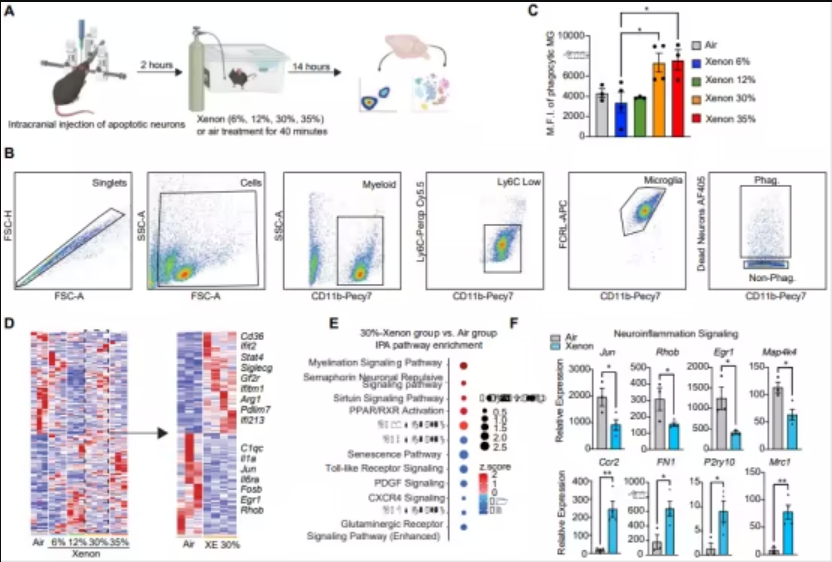Xenon Gas Use In Alzheimer’s Therapy
Xenon Gas Inhalation: A Game-Changer for Alzheimer’s Disease Treatment
In a groundbreaking study published in Science Translational Medicine (January 15, 2025), researchers from Brigham and Women’s Hospital and Washington University School of Medicine unveiled a revolutionary approach to combating Alzheimer’s disease: inhaled xenon gas. This inert noble gas, already used in anesthesia and neuroprotection, demonstrated unprecedented abilities to suppress neuroinflammation, reduce brain atrophy, and activate protective microglial states in preclinical models.
1. The Science Behind Xenon’s Neuroprotective Power
Alzheimer’s disease (AD) is characterized by toxic tau tangles and amyloid plaques that disrupt neuronal communication. Microglia—the brain’s immune cells—often become hyperactive in AD, worsening inflammation. Key findings from the study include:
Microglial Reprogramming: Xenon gas shifted microglia from a pro-inflammatory “attack mode” to a protective “peacekeeping” state.
Blood-Brain Barrier Penetration: Unlike traditional drugs, xenon naturally crosses this barrier, directly targeting brain tissues.
Dual Pathology Protection: In mouse models of amyloidosis and tauopathy, xenon reduced brain shrinkage, improved cognitive behaviors (e.g., nest-building), and lowered neuroinflammation.

2. Why Xenon Gas Stands Out
Proven Safety: Already FDA-approved for anesthesia and neonatal neuroprotection.
Cost-Effective Potential: Researchers are exploring xenon recycling methods to enhance affordability.
Broad Applications: May treat other neurodegenerative diseases like Parkinson’s or ALS.
Quote from Dr. Oleg Butovsky (Co-Senior Author):“This discovery is transformative—a simple inert gas can achieve what complex drugs often fail to do: penetrate the brain and modulate immunity. Xenon’s dual action on inflammation and atrophy is unparalleled.”
3. From Lab to Clinic: Next Steps
Phase 1 Trial: A safety and dosing study in healthy volunteers is planned for 2026.
Long-Term Goals: Develop portable xenon inhalation devices for home-based AD therapy.
Collaborative Efforts: Partnerships with gas suppliers to ensure high-purity xenon for medical use.
Quote from Dr. David M. Holtzman (Co-Senior Author):“Xenon’s efficacy across both amyloid and tau models suggests it could be a universal therapy for neurodegeneration.”
4. The Future of Xenon in Neurology
If trials succeed, xenon gas could:
1.Delay Cognitive Decline in early-stage Alzheimer’s patients.
2.Complement Existing Therapies like anti-amyloid antibodies.
3.Reduce Healthcare Costs through non-invasive, at-home treatments.
Stay ahead in neurodegenerative research with medically certified xenon gas. Whether for clinical trials or therapeutic development, our ultra-pure xenon meets ISO 13485 standards. Contact us for collaboration opportunities or bulk orders.
- Prev: Electronic Special Gas Development Trend
- Next: None





 Facebook
Facebook YouTube
YouTube LinkedIn
LinkedIn Twitter
Twitter